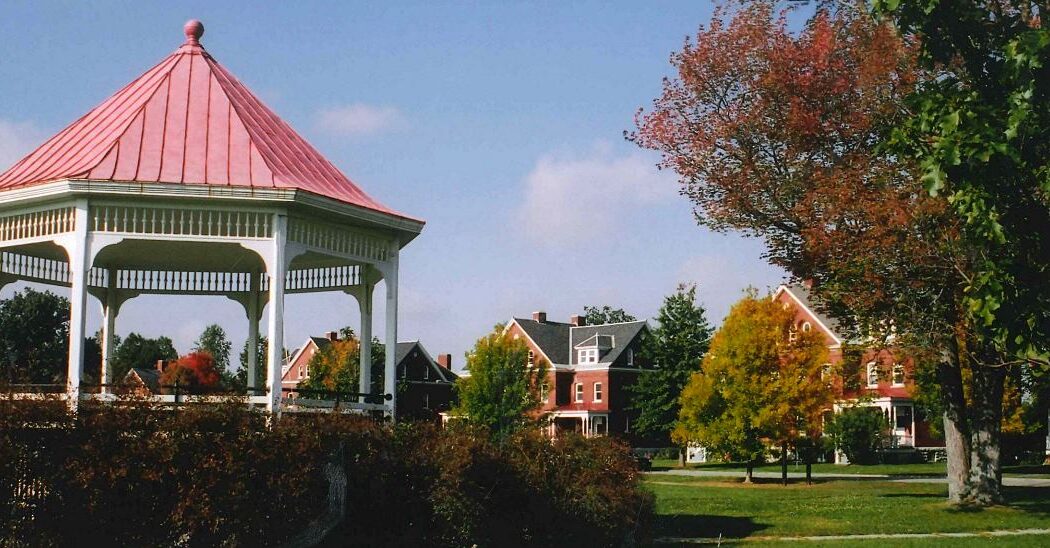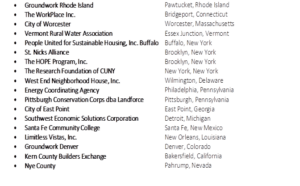A brownfield is a property for which the expansion, redevelopment, or reuse may be complicated by the presence or potential presence of a hazardous substance, pollutant, or contaminant.
There are an estimated 450,000 abandoned and contaminated waste sites in the U.S. When brownfields are remediated and redeveloped, nearby property values within a one-mile radius can increase from 5 – 15.2%, according to an independent study.
On March 11, 2021, the U.S. Environmental Protection Agency (EPA) announced the selection of 18 organizations to receive a total of $3.3 million in grants for restoration economy-style environmental cleanup job training programs to help revitalize under-served communities across the country.
Funded through the EPA’s successful Environmental Workforce Development and Job Training (EWDJT) Program , these grants will provide funding to organizations that are working to create a skilled workforce in communities where EPA brownfields assessment and cleanup activities are taking place.
Rather than filling local jobs with contractors from distant cities, these organizations offer residents of communities historically affected by pollution, economic disinvestment, and contaminated brownfields properties an opportunity to gain the skills and certifications needed to secure local environmental work in their communities.
“EPA’s brownfields job training grants help transform lives by providing individuals the opportunity to gain meaningful long-term employment and a livable wage in an environmental field,” said Barry Breen, Acting Assistant Administrator of EPA’s Office of Land and Emergency Management.
“Individuals completing training often overcome a variety of barriers to employment and many are from low-income neighborhoods or reside in the areas that are affected by the presence of brownfields sites. Seventy-four percent of the individuals trained under this program go on to full-time employment,” he added.
Individuals completing a job training program funded by EPA typically graduate with a variety of certifications that improve their marketability and help ensure that employment opportunities are not just temporary contractual work, but long-term careers.
This includes certifications in:
- Lead and asbestos abatement,;
- Hazardous waste operations and emergency response;
- Mold remediation;
- Environmental sampling and analysis; and
- Other environmental health and safety training.
One of the recipients is the Vermont Rural Water Association, based in Essex Junction, Vermont, which received a $21,584 EWDJT grant.
U.S. Senator Patrick Leahy, Chairman of the Senate Appropriations Committee said, “I thank the Vermont Rural Water Association for implementing this training program. It’s so important to provide workers with the skills they need for these good and important jobs. Qualified utility workers are needed in small towns and in cities in Vermont and across the country. The EPA’s New England Office has always done a great job with its Brownfields Program, and I will continue to support brownfields funding in the EPA’s annual appropriations bill.”
This grant will be used by the Vermont Rural Water Association to train up to 15 students in important skills needed to work in the environmental remediation field and to assist local economic development as part of a Wastewater Operator Apprenticeship Program. This grant program advances environmental justice by providing an opportunity for residents historically impacted by brownfield sites to gain training and employment as a result of cleanup activities taking place in their communities.
“The professional training provided with this EPA grant will help more than a dozen Vermont trainees to learn high-demand professional skills,” said EPA New England Acting Regional Administrator Deborah Szaro. “EPA’s job training grants provide funding for recruitment and training to organizations that are working to create a skilled workforce in communities where EPA brownfields assessment and cleanup activities are taking place. This investment will help prepare people for well-paying jobs in fields that reduce environmental contamination and provide more sustainable futures for the communities most affected by solid and hazardous waste contamination.”
Vermont Rural Water Association, a first-time recipient of EPA’s Brownfields Job Training grant, plans to train 15 students in a training program that includes 288 hours of instruction, including: 40-hour HAZWOPER; OSHA 10-Hour Industry; Operation of Wastewater Treatment Plants; Basic Wastewater and other wastewater classes; OSHA Trenching and Excavation; and Confined Space Entry.
“The Vermont Rural Water Association is honored to receive EPA’s Environmental Workforce Development and Job Training Grant,” said Liz Royer, Executive Director of the Vermont Rural Water Association. “With this funding we will be able to provide new training opportunities to apprentices at wastewater treatment facilities. This program will strengthen the long-term sustainability of Vermont’s wastewater workforce.”
Students who complete the training will earn up to four state and four federal certifications. Key partners include the Vermont Department of Labor Workforce Development Programs and Vermont Works for Women. The organization is targeting apprentices working at drinking water and wastewater facilities across the State of Vermont to not only increase the number of qualified wastewater operators across the state, but to also increase diversity in the water resources field.
“This grant is great news for Vermont workers and the environment. The Vermont Rural Water Association is doing excellent work, and this money will allow them to train and certify local Vermonters to work on important wastewater jobs that will help their communities and our local environment. Investing in a skilled wastewater workforce is a key step to keep Vermonters healthy and working,” said U.S. Representative Peter Welch.
EPA’s Environmental Workforce Development and Job Training program helps put people to work by building a skilled workforce across the country. The program awards competitive grants to cities, nonprofit organizations and other eligible entities to recruit, train and place unemployed and underemployed individuals. Individuals completing the training have often overcome a variety of barriers to employment. Many are from low-income neighborhoods. The training programs also serve dislocated workers who have lost their jobs as a result of manufacturing plant closures or other circumstances.
“It is not a radical idea to suggest that our people have a right to drink clean water and breathe clean air. While the EPA and states like Vermont work hard to protect these resources, we must invest in developing the local workforce to carry out this critical work. That is why I am so pleased to see federal funding go to the Vermont Rural Water Association to train Vermonters on environmental remediation and water and wastewater operations. This training program will create exactly the kinds of good-paying jobs we need all over the country protecting our air and water,” said U.S. Senator Bernie Sanders.
Since 1998, when the EWDJT grant program started, more than 335 grants have been awarded. Over 18,500 individuals have completed training, and of those, more than 13,700 individuals have been placed in full-time employment earning an average starting wage of over $14 an hour. Rather than filling local jobs with contractors from distant cities, EPA created its environmental job training program to offer residents of communities historically affected by environmental pollution, economic disinvestment, and brownfields an opportunity to gain the skills and certifications needed to secure local environmental work in their communities.
Since 1998, the Agency’s EWDJT Program has awarded more than 335 grants. With these grants, 18,541 individuals have been trained and 13,751 have been placed in careers related to land remediation and environmental health and safety, with an average hourly wage of over $14.
The organizations selected for funding plan to train approximately 900 individuals with many of the graduates moving into environmental jobs in their communities. In addition, sixty percent of these organizations plan to serve our country’s veterans.
Job training and workforce development are an important part of the Biden-Harris Administration’s commitment to advance economic opportunities and address environmental justice issues in underserved communities.
Photo of Essex Junction, Vermont courtesy of the City of Essex Junction.
See more information on the selected Brownfields EWDJT grant recipients, including past grantees.
See more information on this program, and other types of Brownfields grants.


